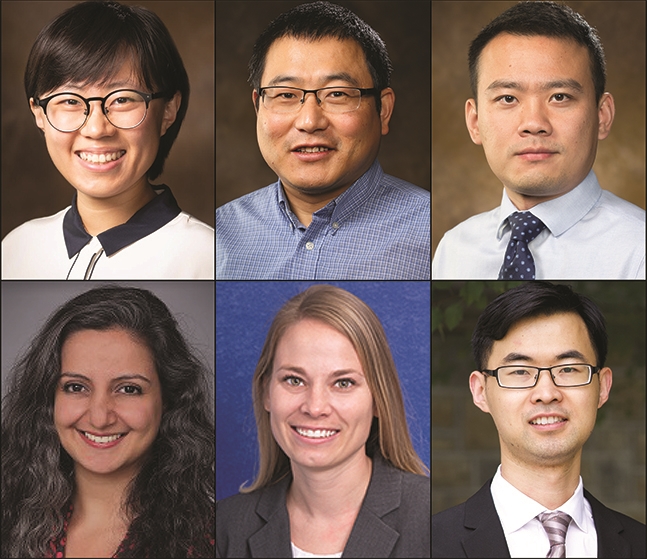Xiao Liu, assistant professor of industrial engineering; Linyin Cheng, assistant professor of geosciences; and Song Yang, professor of sociology, have received a grant from the National Science Foundation to establish international networks to improve national urban resilience. The collaborators from other universities include Jennifer Pazour, Rensselaer Polytechnic Institute; Hiba Baroud, Vanderbilt University; and Xiaowei Yue, Virginia Tech.
The project, titled "International Networks Towards Future U.S. Urban Resilience (Resilient-NET)," takes an integrated technical-social-climate perspective to bring together disparate disciplines and traditionally isolated networks to address the multitude of challenges faced by urban dwellers.
Urban resilience is the ability of city-based socio-technical systems to withstand and recover from catastrophic disruptions while adapting and transforming toward sustainability. Urban resilience is a global issue that requires a global solution, but existing networks on urban resilience research are often shaped by their regional, institutional, disciplinary and social contexts.
Resilient-NET catalyzes new cross-disciplinary global collaborations, synergizes complementary scientific expertise and provides critical access to one-of-a-kind pilot projects, data, platforms and research capabilities for researchers to make global impacts and strengthen their leadership roles on emerging challenges in building resilience into future urban socio-technical systems.
Participating networks include world-renowned research centers on urban resilience from Asia and Europe, cross-disciplinary national research communities and stakeholders from the industry sectors of the Internet-of-Things, Smart Cities technologies and National Labs. This collaboration will identify key research gaps and enable capabilities in building urban resilience.
"The nation's deteriorating infrastructure, the emergence of digitalized cyber-physical urban systems, the unprecedented disruptions such as the COVID-19 pandemic and the intensification of extreme natural events due to climate change are expected to increase the vulnerability and uncertainty of the resilience of American socio-technical systems, significantly impacting more than 80 percent of the U.S. population that reside in urban areas, and 85 percent of the U.S. GDP that is generated by the 259 largest cities," Liu said. "This is a global challenge that requires a global solution."
"Solving the world's most difficult problems requires the kind of multidisciplinary collaboration epitomized by this group of researchers," said Kim Needy, dean of the College of Engineering. "I have no doubt their work will lead us to a place of greater resilience in our largest cities."
Topics
Contacts
Tamara O. Ellenbecker, website developer
Department of Industrial Engineering
479-575-3157,
Jennifer P. Cook, director of communications
College of Engineering
479-575-5697,
